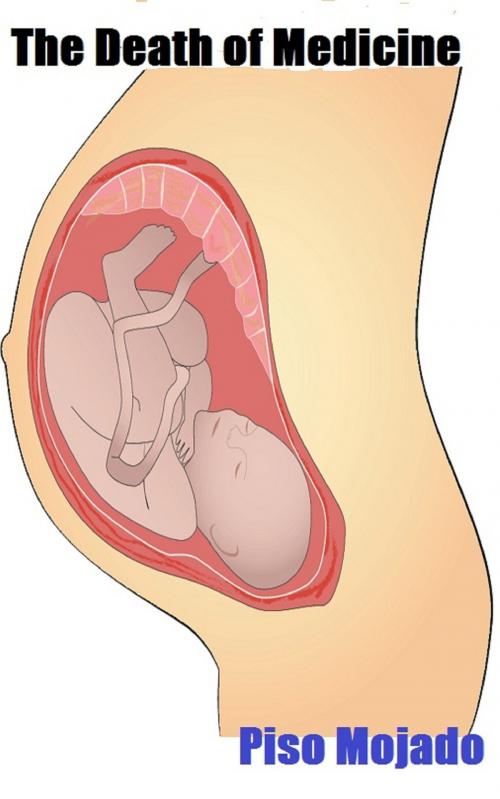| Author: | Piso Mojado | ISBN: | 9781465864888 |
| Publisher: | Piso Mojado | Publication: | February 29, 2012 |
| Imprint: | Smashwords Edition | Language: | English |
| Author: | Piso Mojado |
| ISBN: | 9781465864888 |
| Publisher: | Piso Mojado |
| Publication: | February 29, 2012 |
| Imprint: | Smashwords Edition |
| Language: | English |
Nearly every day on the news there are stories that reflect on the incredible events described in this book. There's a survey that says that more than half of medical personnel do not disinfect their hands thoroughly; an article that says soon antibiotics will not be effective; a doctor on the news warning that soon perhaps a scratch on the knee or a minor cut will be fatal (this type of infection is called "childbed fever" in this book and often referred to as "blood poisoning" in the common vernacular). Clearly, we need to adjust our lifestyle to counter these threats, and yet, for example, one of the movie stars currently most influential with children and teenagers has set a example by declaring she does not wash her hands after she uses the restroom. Is she part of the American majority? Is she reflecting a common skepticism? Is this trend-setter just the first of many to imply that the threat of disease caused by germs and careless hygiene is wildly exaggerated? And isn't she correct? Why should anyone of reasonable intelligence believe in 'germs' and why shouldn't the whole idea of mysterious invisible creatures called 'germs' be reexamined? Isn't the notion of deadly bacteria as a 'primary cause' of sickness just an insulting antithesis to common sense and faith? Many groups are already taking a hard look at 'germs'. In that light, there should be no reason to be afraid to return to the time and the events that first gave birth to this odd idea and, in doing so, dissect the basis of modern medicine in a rational way. Why not take a good hard look at the events that once led the world's greatest geniuses and medical pioneers to reject the ridiculous 'germ theory' (which is unchallenged in our century)? Why not revisit the events that led to the fear of unseen creatures that seem to make madness of scientific logic and recall the true story of the doctor who has already fought the battles we are just recently imagining, the pioneer often referred to as "The savior of women" and "The savior of mothers"? This fictionalized account is one of the most shocking biographies that you will ever read, and includes the real statistics and actual events from the birth clinics where the good doctor struggled against the prejudice, arrogance, and ambition of his era. Because he was so controversial, he is rarely mentioned in textbooks, even though his influence and discoveries led to modern medicine. However, this is more than a book for women or for those who may undergo major medical procedures. It is an engaging detective novel, a warning about the need for separation between medicine and politics, a lesson of how the most brilliant scientists of one era chose reputation over the lives of the women in their care, and a quick glance at the unresolved grievances of 1848 that led to the world wars of the twentieth century. Scientific medicine once died. Could history repeat itself?
Nearly every day on the news there are stories that reflect on the incredible events described in this book. There's a survey that says that more than half of medical personnel do not disinfect their hands thoroughly; an article that says soon antibiotics will not be effective; a doctor on the news warning that soon perhaps a scratch on the knee or a minor cut will be fatal (this type of infection is called "childbed fever" in this book and often referred to as "blood poisoning" in the common vernacular). Clearly, we need to adjust our lifestyle to counter these threats, and yet, for example, one of the movie stars currently most influential with children and teenagers has set a example by declaring she does not wash her hands after she uses the restroom. Is she part of the American majority? Is she reflecting a common skepticism? Is this trend-setter just the first of many to imply that the threat of disease caused by germs and careless hygiene is wildly exaggerated? And isn't she correct? Why should anyone of reasonable intelligence believe in 'germs' and why shouldn't the whole idea of mysterious invisible creatures called 'germs' be reexamined? Isn't the notion of deadly bacteria as a 'primary cause' of sickness just an insulting antithesis to common sense and faith? Many groups are already taking a hard look at 'germs'. In that light, there should be no reason to be afraid to return to the time and the events that first gave birth to this odd idea and, in doing so, dissect the basis of modern medicine in a rational way. Why not take a good hard look at the events that once led the world's greatest geniuses and medical pioneers to reject the ridiculous 'germ theory' (which is unchallenged in our century)? Why not revisit the events that led to the fear of unseen creatures that seem to make madness of scientific logic and recall the true story of the doctor who has already fought the battles we are just recently imagining, the pioneer often referred to as "The savior of women" and "The savior of mothers"? This fictionalized account is one of the most shocking biographies that you will ever read, and includes the real statistics and actual events from the birth clinics where the good doctor struggled against the prejudice, arrogance, and ambition of his era. Because he was so controversial, he is rarely mentioned in textbooks, even though his influence and discoveries led to modern medicine. However, this is more than a book for women or for those who may undergo major medical procedures. It is an engaging detective novel, a warning about the need for separation between medicine and politics, a lesson of how the most brilliant scientists of one era chose reputation over the lives of the women in their care, and a quick glance at the unresolved grievances of 1848 that led to the world wars of the twentieth century. Scientific medicine once died. Could history repeat itself?















